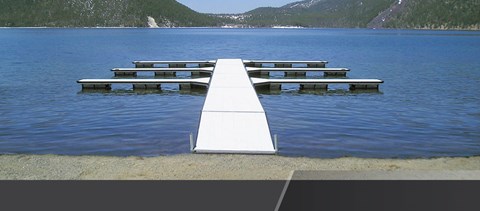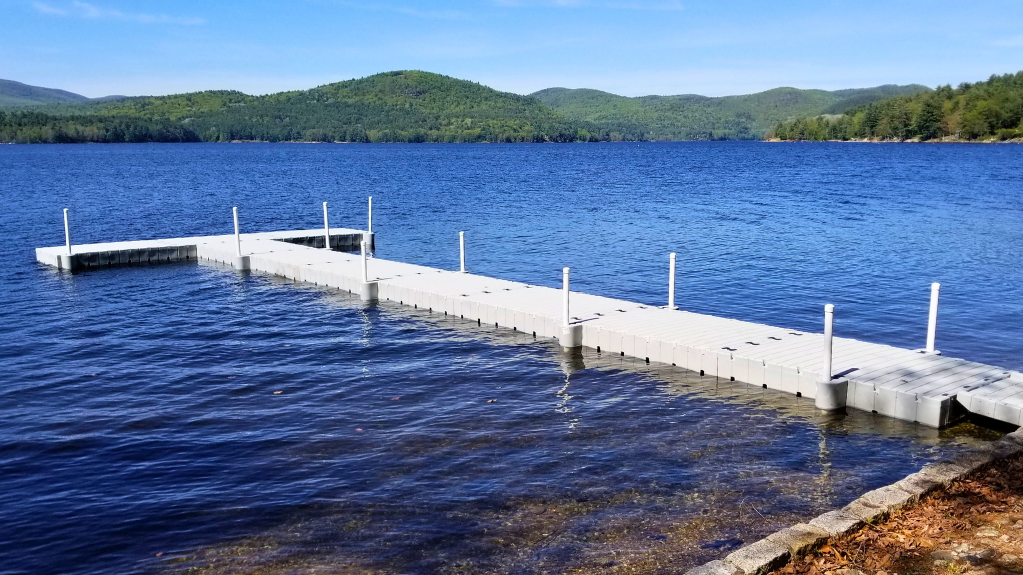Navigating the Options: Picking the Right Dock Company for Your Floating Dock Project
Navigating the Options: Picking the Right Dock Company for Your Floating Dock Project
Blog Article
Floating Docks: The Suitable Option for Versatile Water Gain Access To
Floating docks present a compelling option for a range of water gain access to requires, offering convenience that goes beyond conventional mooring alternatives. Their ability to adapt to rising and falling water degrees while making sure security and security makes them especially advantageous for both industrial and leisure applications. In addition, the modular nature of floating docks helps with modification, catering to details needs. Nonetheless, the subtleties of setup and upkeep, along with the variety of applications, call for a closer evaluation to totally appreciate their prospective benefits and implications for waterway gain access to methods.
Benefits of Floating Docks
Floating docks deal many advantages that improve water gain access to for different applications. Their capacity to fall and increase with transforming water degrees makes them especially useful in environments with changing trends or seasonal variations. This flexibility guarantees that vessels can easily tie without concern for the water's deepness, offering a reputable system for entertainment, industrial, and commercial uses.
Furthermore, floating docks are commonly constructed from sturdy products that stand up to rust, making them ideal for lasting usage in aquatic atmospheres. Their installment is normally much less invasive than traditional set docks, reducing the environmental effect and assisting in quicker implementation (floating dock builder). This versatility permits much easier relocation or reconfiguration according to user requirements or environmental adjustments
Safety is an additional crucial advantage; floating docks can give secure access for people boarding or disembarking from watercrafts and reduce the risk of crashes linked with unpredictable surface areas. They can be designed to fit a variety of accessories, such as fenders and cleats, improving functionality. In general, floating docks stand for a reliable option for enhancing water accessibility across diverse markets while advertising safety and environmental sustainability.

Sorts Of Floating Docks
Numerous types of floating docks deal with different needs and atmospheres, each created with specific attributes to enhance capability. One of the most common types include modular docks, which include interlacing sections that permit simple customization and development. These docks are optimal for entertainment usage, as they can be customized to fit various watercraft sizes and water conditions.
An additional prominent alternative is the stationary floating dock, which continues to be secured in area yet drifts with changing water levels. floating docks. This type is particularly fit for locations with marginal tidal variations, offering secure accessibility for fishing or swimming. In addition, there are drive-on docks, which include a sloped style that permits boats to quickly drive on and off, making them appropriate for individual watercraft and smaller sized vessels
For commercial applications, sturdy floating docks are available, constructed from enhanced materials to withstand substantial loads and harsh aquatic settings. Green floating docks utilize sustainable products and designs to reduce environmental effect, typically including features like vegetation to sustain regional wildlife. Comprehending the different types of floating docks ensures that individuals can pick one of the most proper service for their details needs.
Setup Process Overview
An effective installation of floating docks needs cautious planning and interest to information to ensure optimum performance and safety. The preliminary action entails assessing the site problems, consisting of water depth, existing, and prospective challenges. This analysis informs the selection of the proper dock materials and layout tailored to the particular atmosphere.
Next, getting essential licenses is essential, as several territories have policies concerning building and construction on water bodies. As soon as permissions are secured, the installation can get more proceed. Begin by preparing the structure, which may include anchoring systems or pilings customized to the dock type and regional conditions.
Following the foundation setup, put together the dock areas according to supplier specifications. Ensure that all components are firmly fastened and straightened to stand up to environmental stress and anxieties. Placement the dock in the designated location, guaranteeing it is level and stable.

Maintenance Tips and Ideal Practices
After the installation process is full, continuous upkeep plays a crucial role in ensuring the durability and capability of floating docks. Routine inspections ought to be conducted to recognize any type of indicators of wear, damage, or damage - floating dock company. Inspect for any kind of loosened fittings, fractures, or separation in the dock areas, as these can endanger architectural stability
Cleaning up the dock is important to eliminate particles, algae, and other build-up that can affect its appearance and security. Make use of a gentle stress wash occasionally to keep sanitation without creating damage to the surface area. In addition, applying a protective sealer every couple of years can help enhance long life and resist ecological wear.
Pay focus to the mooring lines and anchors, guaranteeing they are cost-free and safe and he has a good point secure from rust. Replace any abject components without delay to stay clear of hazards. Seasonal changes may likewise be required; throughout extreme climate condition, rearranging or enhancing the dock can stop damages.
Applications for Floating Docks
Floating docks offer a multitude of applications, satisfying both entertainment and industrial demands. In leisure settings, they supply seamless accessibility to waterways for tasks such as boating, fishing, and swimming. Their flexible nature permits setup in differing water levels, making certain steady and risk-free gain access to no matter tidal changes.
Commercially, floating docks are essential for marinas and waterfront services. They assist in the docking of vessels, making it possible for reliable filling and unloading of products. Their modular style enables easy expansion or reconfiguration to fit transforming business demands, making them ideal for boat rentals, trip operations, or angling charters.
Additionally, floating docks are made use of in ecological applications such as water research study and environment reconstruction. They can act as systems for scientific studies, keeping an eye on water high quality, or conducting wildlife surveys without troubling delicate ecosystems.
In industrial contexts, floating docks are utilized in building and construction tasks, offering accessibility to hard-to-reach locations for equipment and personnel. Their flexibility, toughness, and marginal effect on the atmosphere make them an optimum selection for a variety of applications, enhancing both functionality and accessibility in numerous water-based settings.
Conclusion
Finally, floating docks represent an optimal solution for diverse water access needs, owing to their flexibility, durability, and modular style. These structures help with secure mooring for different applications while lessening ecological influence during setup. The lowered upkeep demands further improve their usefulness. Therefore, floating docks function as an important property for recreational, industrial, and environmental projects, making sure trusted accessibility to rivers and promoting lasting methods in marine settings.
Floating docks existing an engaging remedy for a selection of water access requires, providing convenience that transcends typical mooring alternatives.Floating docks offer countless advantages that enhance water access for numerous applications. On the whole, floating docks stand for a reliable remedy for improving water access throughout diverse markets while advertising safety check this site out and environmental sustainability.
Another preferred alternative is the stationary floating dock, which continues to be anchored in place but drifts with altering water levels.In verdict, floating docks represent an optimal option for diverse water accessibility requires, owing to their adaptability, sturdiness, and modular layout.
Report this page